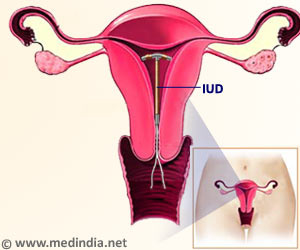Experts regret that emergency help for pregnant women is inadequate in Pakistan, even in cities. The situation is far worse in rural areas.
Experts regret that emergency help for pregnant women is inadequate in Pakistan, even in cities. The situation is far worse in rural areas.
Razia, 24, was brought dead to the hospital. She had a full-term pregnancy and her death was caused by the delay in seeking treatment for vaginal bleeding called antepartum haemorrhage (APH).“APH should be considered an emergency for which medical treatment should be sought immediately, as it risks two lives. If the mother dies, the baby has to be taken out from the womb within five minutes,” Dr Azra Jamil at the Qatar Hospital’s gynaecology ward said
About Razia, she says that though there could be many reasons for APH, hypertension could be the reason in her case. “We assume that she was hypertensive and started having labour pains at home. Both lives could have been saved had she been brought to hospital in time. Unfortunately, there was no help available at home the whole night when she started to bleed.”
According to Razia’ brother-in-law Mohammad Jan, who brought her to the Qatar Hospital in the morning, Razia called him twice in the night, requesting that she be taken to a hospital as her husband had left for Punjab a few days ago. “I had no idea about the enormity of the situation. So, I told her to wait till morning. But, by then, it was too late and she died bleeding in the taxi, leaving behind three children,” he says.
According to Health of Women in Pakistan 2009, a report recently compiled by the Society of Obstetricians and Gynaecologists of Pakistan (SOGP), the delay in consulting a doctor is one of the four major factors contributing to causing women’s deaths and pregnancy related mortality in Pakistan.
“The four delays of pregnancy include the delay in consulting a doctor, the delay which occurs due to unavailability of transport, the delay in emergency care due to lack of medical staff and equipment and the delay in recognition of post-natal complications,” the report states.
Advertisement
About 375,000 women suffer from pregnancy related complications that include vesicovaginal fistula, rectovaginal fistula, chronic pelvic pain, loss of uterus, infertility, pelvic inflammatory diseases and depression.
"The result is that over 80 per cent of women still deliver at home with the help of unskilled attendants; most basic health units are not functional and major secondary and tertiary care hospitals do not have round-the-clock emergency obstetrical care," the report states.
A study of 118 mothers who died before reaching the Jinnah Postgraduate Medical Centre, sought to identify the factors that contributed to the delay in reaching the hospital in time - family hesitancy (16 per cent), absence of husband from home (13 per cent), delay due to improper referral (21 per cent), non-availability of transport and finances (36 per cent) were among the issues cited then.
Commenting on the case, Dr Shershah, a senior obstetrician at the Qatar Hospital, regretted lack of awareness over the needs of pregnant women, reports Faiza Ilyas for Dawn.
"In Karachi, none of the government-run maternity homes provide 24-hour emergency services. The doctor leaves at 2pm mostly. After that time, it’s up to the staff, which can be a nurse, a midwife, an ayah, to take on the case or refuse it," he says.
Pointing out some important issues affecting women’s health, Dr Shershah says: “At the gynaecology section, around 300 to 350 women daily turn up in the outpatient department. Forty per cent of the patients admitted to the facility suffer from acute anaemia, which is due to iron deficient nutrition and repeated pregnancies.
“Thirty per cent have endured physical violence during pregnancy and in 95 per cent cases husbands do not accompany their wives. This situation exists not only at Qatar Hospital, but at all government-run hospitals in the country.”
In order to improve the health status of women, the SGOP report demands provision of free emergency obstetric care in all government hospitals and maternity homes round-the-clock; activation of basic health units, health centres and taluka hospitals; long-term planning to produce an army of skilled midwives; total autonomous status of the National Committee on Maternal and Newborn Health for monitoring the emergency obstetrical care and investigating maternal deaths and consultation with representative medical bodies in improving women’s health status.
Along with that, there is also a call for a change of attitudes towards women. Because, as the report states, "a system which is based on gender inequality will not adopt policies for the well-being of women who are poor, powerless, pregnant (most of the time without their consent) and weak as a class."
Source-Medindia
GPL/L














